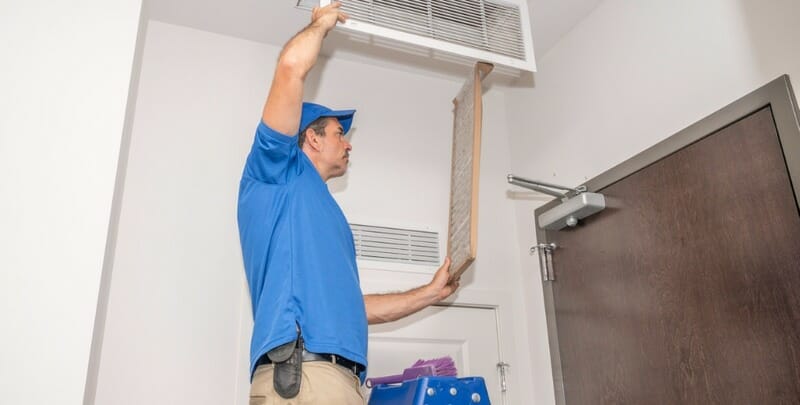In the current landscape, the significance of HVAC, commonly known as HVAC, cannot be overstated, especially in commercial spaces. A efficient HVAC system plays a critical role in maintaining comfortable indoor environments, which directly impacts work efficiency, health, and holistic comfort for both employees and customers. Grasping the complexities of HVAC systems is crucial for business owners and facility managers who want to ensure optimal performance and energy efficiency.
This detailed guide will cover different elements of HVAC, from the fundamentals of how these systems work to diagnosing common issues, and from maintenance strategies to the newest innovations in the field. Whether you are looking to improve your current system or simply want to learn how to optimize your HVAC for improved air quality and energy savings, this article is designed to provide you with the insight you need to make wise choices. Join us as we explore the critical role of HVAC in boosting the functionality and usability of business environments.
Understanding HVAC Technology
Heating, Ventilation, and Air Conditioning stands for warmth, airflow, and cooling, a essential system in both spaces. This comprehensive system is designed to provide ease through temperature control and quality control of air. By grasping how HVAC functions, property owners can make knowledgeable decisions regarding setup, upkeep, and upgrades to ensure effective performance.
Heating is typically achieved through different methods, including heaters, boilers, and heat pumps, which warm the air or move warm water throughout the building. hvac company is key for maintaining indoor air quality, entailing the exchange of indoor air with fresh outdoor air. Cooling systems, mostly using HVAC systems, help reduce indoor temperatures during hotter months, ensuring a comfortable environment regardless of external conditions.
As commercial entities and corporate spaces strive for sustainability and environmental responsibility, advanced HVAC technologies are becoming increasingly vital. Intelligent thermostats and advanced filtration systems enhance control over interior environments and air quality, making it simpler for businesses to lower energy consumption and boost overall comfort. As a outcome, understanding HVAC systems not only contributes to a healthier indoor environment but also supports objectives for commercial settings.
HVAC Maintenance and Efficiency
Routine maintenance of your HVAC system is crucial for ensuring it functions effectively. Regularly scheduled inspections and tune-ups can spot potential issues before they escalate, leading to costly repairs or replacements. Keeping filters free of debris and components correctly calibrated helps to ensure optimal air flow and energy efficiency. A well-maintained system not only reduces you money on electricity bills but also prolongs the lifespan of your equipment, which is particularly important for commercial spaces that depend on consistent climate control.
Productivity is a crucial factor for both domestic and commercial HVAC systems, as providing a comfortable environment is important for productivity and comfort. When HVAC systems are operating at maximum efficiency, they consume less energy to heat or chill a space. This is crucially relevant in larger buildings where energy costs can be considerable. Adopting cost-effective solutions, such as improving equipment or using smart thermostats, can drastically reduce energy consumption while enhancing overall performance.
In conclusion, putting resources into regular HVAC maintenance and finding ways to boost efficiency can provide significant long-term benefits. For http://rtistrees.com/members/sizevalley6/activity/3115062/ , this means creating a more pleasant environment for employees and clients, encouraging productivity, and upgrading indoor air quality. By staying proactive with maintenance and choosing wisely about upgrades, businesses can ensure their HVAC systems continue to be reliable and budget-friendly for the long haul.
HVAC for Commercial Spaces
Heating, Ventilation, and Air Conditioning systems play a essential role in commercial spaces, ensuring a pleasant and efficient environment for employees and clients alike. Proper heating, ventilation, and air conditioning are critical for maintaining a stable indoor climate, which can significantly affect workplace productivity. By regulating temperature and humidity levels, an efficient HVAC system creates a pleasant atmosphere that enhances concentration and efficiency among workers, making it a crucial component of any commercial building.
Additionally, commercial buildings often have larger spaces and more complex ventilation requirements, making the selection and maintenance of HVAC systems important. Businesses must evaluate their individual needs based on the size of their space, the number of occupants, and the nature of their operations. Regular maintenance is necessary to prevent common problems, such as uneven temperature distribution or inadequate airflow, which can lead to discomfort and lower employee morale. By investing in a trustworthy and high-performance HVAC system, businesses can improve indoor air quality and reduce energy costs.

Moreover, advancements in HVAC technology have introduced energy-efficient solutions tailored for business applications. Businesses can gain advantages from smart HVAC systems that respond to occupancy patterns and optimize energy use, resulting in considerable cost savings. Furthermore, innovations such as geothermal heating and cooling or solar-powered HVAC systems can provide sustainable options that contribute to a company's environmental goals. Overall, prioritizing HVAC in commercial spaces not only enhances comfort and productivity but also aligns with the growing demand for energy efficiency and sustainability.
